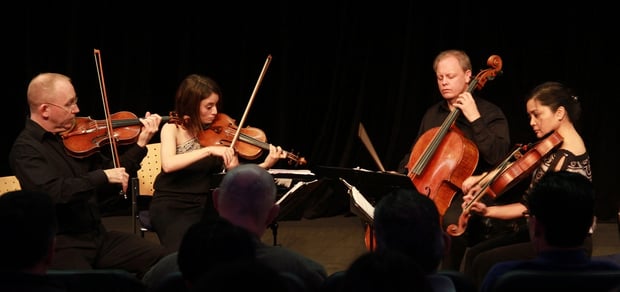If you think about how much music exists in the American rock and pop tradition, it’s mind numbing. People have been recording and writing songs and albums by the tens of thousands every year since the 1950s in all countries and all styles.
Because you’re a human being with other stuff to do, you haven’t heard, and will probably never hear, the vast majority of it – even the best of it. You might stumble upon your new favorite music on a dusty cassette from some unknown artist in Switzerland, or discover an amazing scene in a rural Ecuadorian village.
However, all the music in rock is just a drop in the ocean compared to the richness of the classical tradition. Formal, composed Western music of different sorts has been in existence since around 1400, the start of the Renaissance. That’s way before we had any way to record music, but luckily, paper sheet music can last a long time.
What’s truly amazing is that pieces from hundreds of years ago are still being performed to huge crowds today. In fact, one of the composers cited in this piece has a recurring competition for the best performance of his works, although he died more than a hundred years ago. Great composed pieces inform all the music that has been written since. And they can inspire you now. Here are five composed works that are sure to blow your mind.
1. Frederic Chopin, "Piano Sonata No. 3"
The great Polish prodigy Frederic Chopin is still nearly a household name, although he died at 39. His "Piano Sonata No. 3" (as performed here by Stanislav Bunin) makes a mockery of the measure lines with its free-flowing, powerful rhythm. If you’re in a hurry, go to minute 15 for the Adagio (the third movement) to soak up some gorgeous arpeggios. Chopin’s feeling and passion are manifest, 17 decades after his passing.
2. Eric Whitacre, "Cloudburst"
Not all great composers call to us from ages past. American Eric Whitacre is from Reno and has played in a techno band. He also creates jaw-dropping choral pieces like this one, showcasing tone-cluster harmony that extends chords out well beyond the triad, and demands exquisite pitch from all his vocal performers. But what really sets his work apart is the atmosphere and the sense of wonder evoked in the listener.
3. W. A. Mozart, "Requiem"
The definition of a child genius, Wolfgang Amadeus Mozart was the rock star of his era. He could back it up with the massive power and effortless invention of his work. To hear the "Requiem," perhaps his single greatest achievement, is like standing before a Van Gogh painting or the statues at Easter Island. He’s created something timeless, something against which other great work will be judged forever.
4. Franz Liszt, "Hungarian Rhapsody"
Before Eddie Van Halen and the idea of the guitar hero, there were classical technicians like Nicolo Paganini and Franz Liszt. Liszt, a piano virtuoso, specialized in pieces that few others besides himself could perform. When you hear this one, you’ll see why, with the fireworks beginning just after the 90-second mark. You’ll also recognize the tune, which was once borrowed by Tom and Jerry.
5. György Ligeti, "Lux Aeturna"
Weirder and less famous than some of the other names here, contemporary composer Ligeti only left us in 2006, leaving behind a body of difficult, inspired, dense compositions. We sometimes hear about experimental musicians transcribing the sounds of black holes, or playing tree rings like a vinyl LP. But Ligeti appeared to have discovered true space music, and here’s the proof.
Jesse Sterling Harrison is an author, recording artist, and part-time farmer. He lives in Massachusetts with his wife, three daughters, and a herd of ducks.



